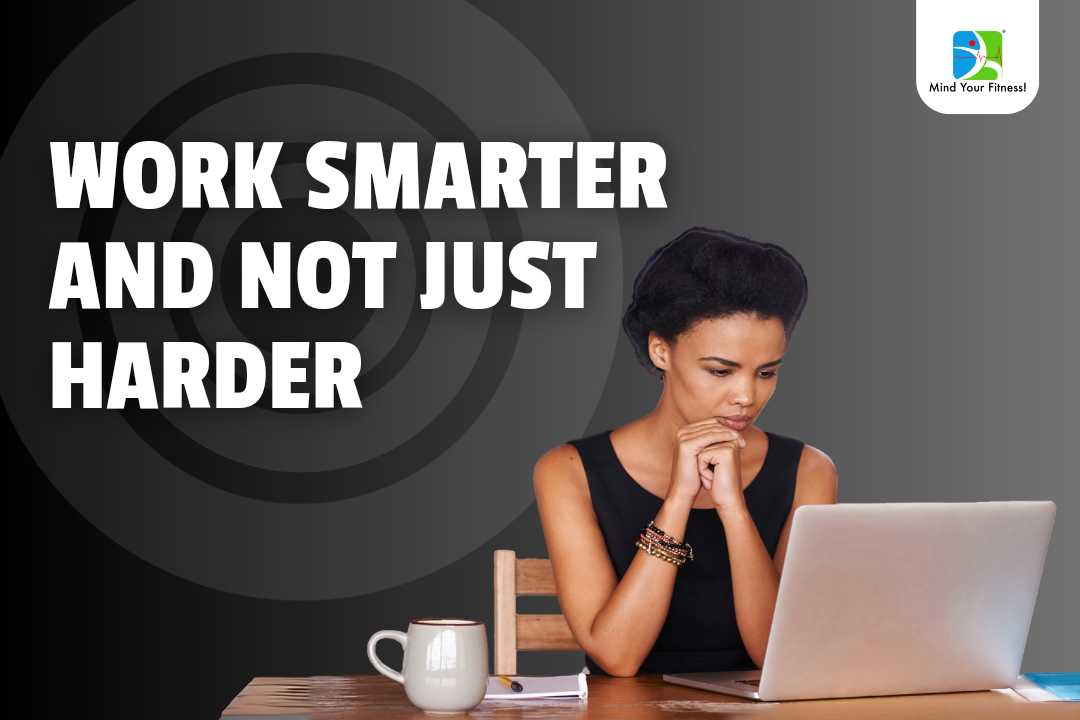Ever feel like you are running on a hamster wheel, putting in endless hours but not seeing the results you desire? It’s time to switch gears and discover the magic of working smarter and not just harder. In a world driven by productivity and efficiency, the age-old adage “Work smarter, not just harder” has never rung truer. In this blog post, we’ll explore practical strategies and mindset shifts to help you maximise your output without burning the midnight oil.
Cutting down on tasks
The art of prioritisation is a cornerstone in the pursuit of working more efficiently. You can match your efforts to your goals by choosing and concentrating on high-impact projects. A helpful tool in this endeavour is the Eisenhower Matrix, which assists in classifying jobs according to their urgency and significance and directs you towards those that are actually important. Having an unreasonable to-do list when you wake up will not only prevent you from being productive, but it will also make you feel as if you are setting yourself up for failure. A shorter to-do list is more manageable and less daunting.
Not waiting for motivation
One of the easiest methods for increasing productivity is explained by the Zeigarnik Effect, a psychological phenomena. According to this effect, putting off a chore causes mental strain and keeps it front and centre in your mind. Completing the assignment is the only way to release this strain. Starting a project is usually the hardest part of the process. After spending a few minutes concentrating on the task, the brain’s innate tendency to finish it ought to take over. So, the next time you’re tempted to put off a task, just do the first step, and chances are, the rest will work themselves out.
90 Minute clock
Early sleep scientist Nathaniel Kleitman discovered “basic rest-activity cycles,” which are cycles lasting 90 to 120 minutes that control our daily activities. Research indicates that the human brain can function at its best for around ninety minutes before starting to function less well and needing a rest. By following this cyclical pattern, one can improve brain function in general. Working in 90- to 120-minute work sessions with a 20- to 30-minute break in between allows for extended periods of focus, reduced distractions, and increased energy.
Leverage your time
Is there a saying that goes, “timing is crucial”? The time of day you spend working on particular tasks has a big impact on how productive you are. It’s not a one-size-fits-all strategy, though, as everyone has a different internal clock. “When: The Scientific Secrets of Perfect Timing” author Daniel Pink claims that there are three stages of productivity that every person experiences during the day: peak, trough, and rebound. We are most focused about midday, thus this is a great time for analytical work as our attention is at its best just before and throughout our peak. On the other hand, it’s easier to focus on creative work during the trough, when our vitality is at its lowest. Time-blocking and Pomodoro techniques, for example, help set aside concentrated blocks of time for particular projects, so reducing burnout and promoting continuous concentration.
Art of Delegation
One of the most important skills is knowing when to assign work. Delegating is an indication of wise resource management, not weakness. It entails determining each team member’s strengths and assigning tasks appropriately. This reduces your workload while fostering a supportive and empowered team atmosphere. Even though it may be difficult for control freaks, perfectionists, or micromanagers, learning the art of delegation is crucial. It’s crucial to recognise that productive delegation increases output. According to research, CEOs who are good at delegating not only report feeling less burned out and less decision fatigued than their counterparts, but they also bring in 33% more money.
Have some fun
As underrated as this suggestion is, the more you have fun, the more your life is balanced and the easier your creative engines work for your tasks. Achieving a harmonious and balanced life involves intertwining moments of fun with the principles of working smarter. Embracing leisure activities, spending time with loved ones, and cultivating personal interests not only enrich our lives but also contribute to enhanced productivity. The whole crux of, “work smarter, not harder” encompasses not just optimizing work processes but also recognizing the significance of a well-rounded life. Taking breaks, enjoying life outside of work, and maintaining a healthy work-life balance are integral components of a holistic approach. By understanding that joy and relaxation are not antithetical to productivity, but rather integral to it, we can navigate life’s demands more efficiently, foster creativity, and ultimately lead a more fulfilling existence.





